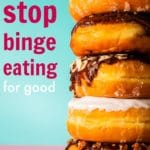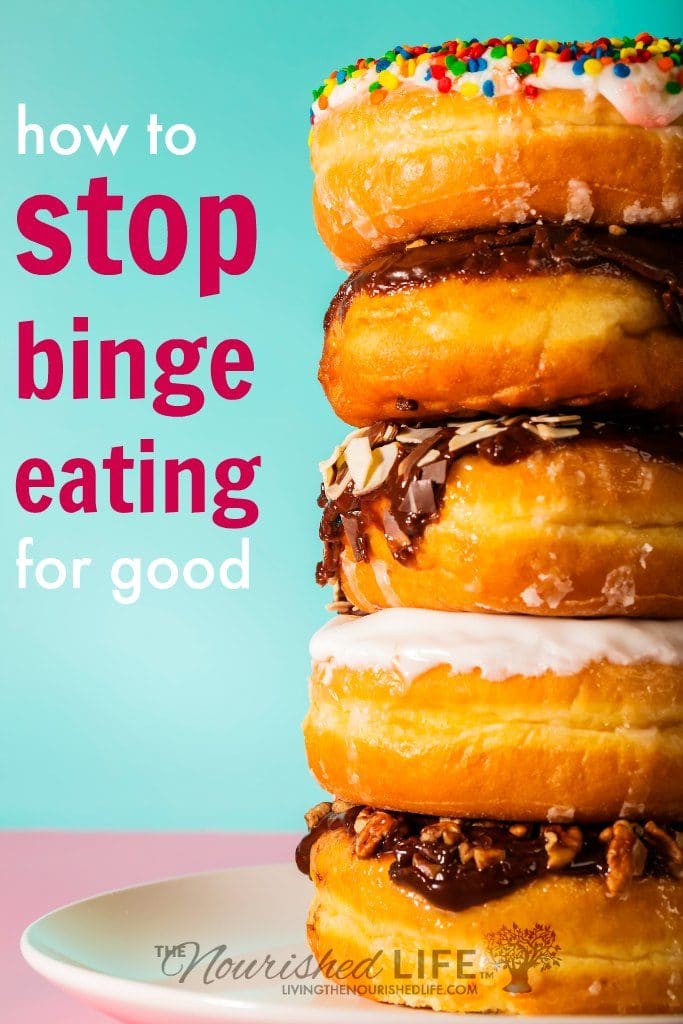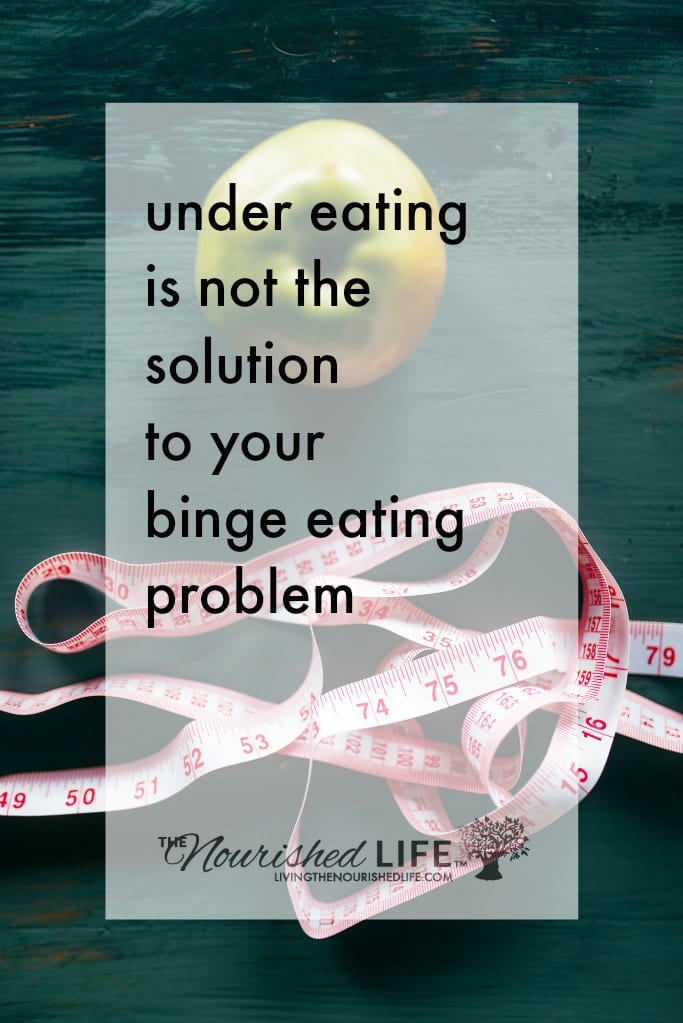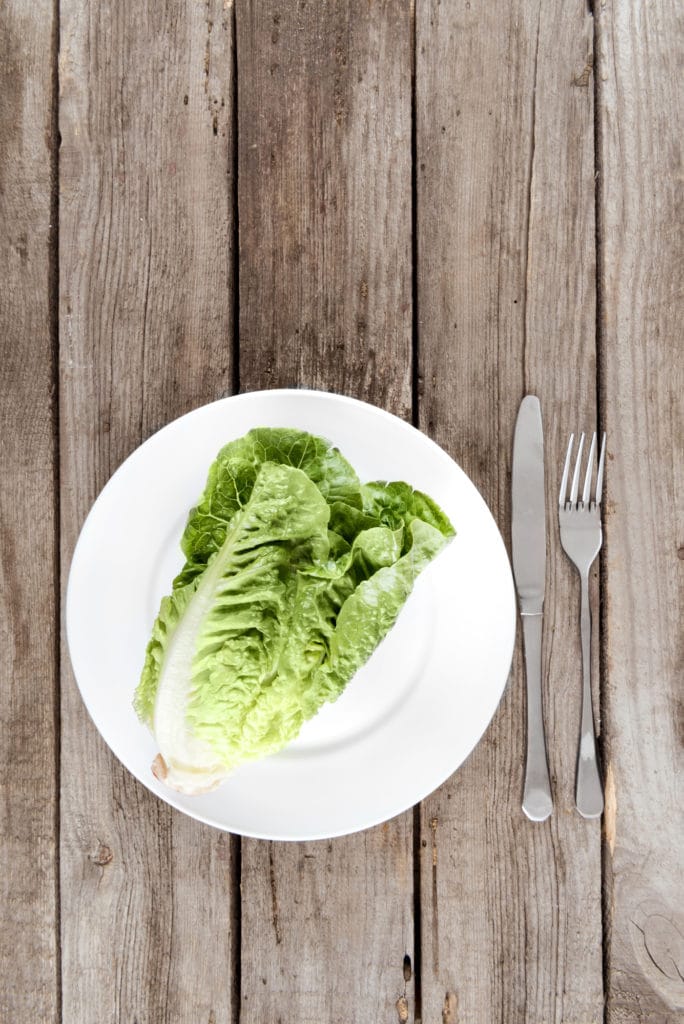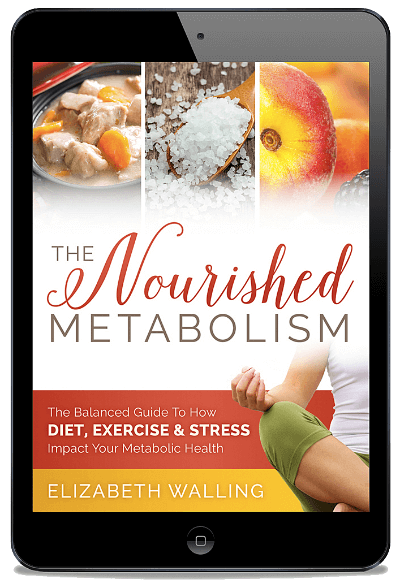I know what it feels like when you can’t stop compulsive eating. You may have to find a way on how to stop binge eating to break your normal cycle.
Binge eating can feel like a monster inside you, waiting to pounce on the next pizza or candy bar that comes your way.
I’ve downed a 1/2 gallon of cookies and cream ice cream… all in one sitting.
Binge eating is a hard cycle to break, but I was able to do it once I tackled the underlying causes.
The Shame of Binge Eating
Binge eating is not something I’ve talked about much. Eating an entire pizza wasn’t exactly something I wanted to brag about.
In fact, I was downright ashamed every time I ended up on a binge.
A ton of shame surrounds binge eating. Out of control eating feels like a moral failing.
I should be able to willpower through my cravings. I should be able to just eat light salads for lunch and not complain. Should, should, should.
And that’s exactly where the shame comes from – all those shoulds.
Shame comes from believing there’s something deeply wrong with us. Guilt, on the other hand, is about behavior.
I might feel guilty about eating too much ice cream because I know it wasn’t a healthy choice… but shame goes deeper.
Shame says I am seriously messed up for eating that ice cream. A failure. A fat pig. (Notice the name-calling – shame often comes with name-calling attached.)
Restriction. Obsession. Binge. Shame. Repeat.
The problem is that shame and silence keep us stuck. So I’m here to say if you can’t stop binge eating – you’re not alone. You’re just human, and it’s okay.
Here are a few interesting facts about binge eating:
- 8 percent of adults in the United States have problems with binge eating at some point or another. That’s millions of people. You are absolutely not alone.
- It’s estimated that about half of the cause of binge eating is genetic – which means, when combined with other factors, some people are simply more susceptible to binge eating. (source)
Binge eating may not be a healthy behavior, but shaming yourself isn’t either. And two wrongs don’t make a right. 😉
For me, binge eating was part of a larger cycle – all centered around shame – that I put myself through for years. It went something like this:
- I hated my body and losing weight felt like an easy way to gain control during times when my life felt increasingly out of control.
- A restrictive diet gave me something to obsess over and dive into. It was easy to feel in control when there were “good” foods to praise and “bad” foods to blame for everything I thought was wrong with me.
- But as soon as I started restricting large food groups and cutting calories to lose weight, my obsession with food became constant. I was always hungry and thought about food all. the. time.
- Cravings kick in and now I can’t stop thinking about everything I want to eat but can’t have because it’s “bad” food. I hate myself because I want to eat everything I shouldn’t.
- Eventually, I just can’t take it anymore and end up binge eating a ton of pizza, nachos, pasta, cookies, candy, and ice cream.
- I feel horrible and hate myself even more, and the cycle starts all over again.
Binge Eating vs. Splurging vs. Unhealthy Habits
Before I move on to how to stop binge eating, I want to talk about what binge eating really is… and what it isn’t.
Binge Eating
Binge eating is when you eat a very large amount of food in a short window of time. Binge eating feels compulsive and out-of-control.
You may feel full to the point of sickness, but still, feel compelled to eat even more.
Binge eating disorder is defined as having a binge eating episode at least once per week for three months or more. To learn more about binge eating disorders, please go here.
Splurging
I like to make an important distinction between binge eating and what I call splurging.
I’ve seen a lot of women talk about binge eating when actually they simply ate an extra slice of pizza and some ice cream for dessert.
Splurges are normal and part of being a healthy human. We all eat an extra piece of cake at a birthday party, indulge a little too much at a holiday dinner, or have a burger and fries now and then.
This can feel like a binge if you’re stuck in a mindset of restriction and trying to eat as little as possible. In some cases, the “binge” was actually just eating a normal meal when you’re trying to stay on an extremely restrictive diet.
Yes, sometimes this can feel very compulsive… because you’re starving yourself. When your body perceives a famine (even when it’s a self-inflicted famine), its reactions can be extreme. More on that in a minute.
Unhealthy Habits
Unhealthy habits are when you might splurge too often, maybe even daily, or you might tend to eat foods that are easy to overeat on a regular basis.
So while you might not even sit down and eat an enormous amount of food in one sitting, you tend to always eat a little beyond the point of fullness, or snack out of boredom, or indulge in treats for fun.
Unhealthy habits are less compulsive but can still feel difficult to overcome.
How to Stop Binge Eating
“An ounce of prevention is worth a pound of cure.” This old saying definitely applies to binge eating.
At the moment where you feel compelled to binge, it can be extremely difficult to stop. The best way to stop binge eating is to prevent the triggers that cause it in the first place.
How to Stop Compulsive Eating
Several years ago, I was convinced I had no power to stop binge eating. In those moments when my stomach felt like a bottomless pit (even when I technically felt full), the idea of willpower was laughable.
I tried distracting myself. Silly things like painting my nails or reading a book did absolutely nothing to take my mind off food.
And when I was craving brownies? No amount of carrot sticks could stop me from wanting those brownies.
Best case scenario? I end up eating the carrots and then the brownies. There was never once an occurrence when I ate the carrots instead of the brownies.
Nothing I did to stop binge eating actually helped me. But I had way more problems than just binge eating.
I had worse acne than when I was a teenager, insomnia that left me exhausted every day, scary mood swings, and the smallest stress felt like the end of the world.
Binge eating felt like small beans compared to everything else I was dealing with. But as I explored what it means to be healthy and happy, my binges slowly became a thing of the past.
It’s Time to Stop Dieting
Did you know… restrictive eating can trigger binges? Like I mentioned earlier, dieting triggers a famine response in the body.
This means that when your brain thinks food is scarce, it laser focuses on what you’re going to eat next. And if high-calorie food is available, your brain says, “Eat it! Eat it all or you’ll starve to death!”
The thing is, your brain can’t tell the difference between an actual famine and a low-calorie diet. (One might argue that there’s not much of a difference anyway.)
It took me a few years to break free from the dieting mindset, but I finally did and it made all the difference. Read what happened when I stopped dieting here.
Think about the long game when it comes to your physical and mental health and your weight. It’s the small, everyday habits that keep you healthy and happy.
What is the dieting mindset?
For me, letting go of the dieting mindset meant letting go of way more than just dieting. It’s how you approach food, exercise, and health in general.
Here’s what I changed while letting go of the diet mindset:
- I quit restricting food groups and going on restrictive diets. I stopped labeling foods as good or bad, and I stopped thinking of myself as a good or bad person based on what I last ate.
- I stopped overexercising and using exercise as a punishment for eating “bad” foods. I began exercising in a way that empowers me and helps me feel in tune with my body, with a focus on my long term health rather than a short term scale drop.
- I rest and give myself downtime. I prioritize things like sleep, reading on the back porch, creative projects that bring me joy, time with my family, and taking leisurely walks outside.
- I learned to practice self-compassion and reject shame-based thinking. I credit Brene Brown’s work for helping me a lot in this area.
All this did not happen overnight. It was a slow (sometimes painful) dance of two steps forward and one step back.
But eventually, I was able to strike a pretty comfortable balance of eating well, enjoying a wide variety of foods in moderation, and being active in a way I really enjoy (without overdoing it).
Then Binge Eating Disappeared
I never tried not to binge. I just wanted to feel healthy and happy again. And slowly, my sleep got better. My moods became more balanced. My skin started glowing more.
And something else happened during this time. Without even trying – without even thinking about it – I stopped binge eating.
It didn’t happen all at once. At first, my binge eating episodes just occurred less frequently (like maybe 3-4 times per month instead of twice a week).
Then a few weeks would go by without a real binge. Then a couple of months. Pretty soon my all-out binges were few and far between.
Now? I can’t even remember the last time I really binged on something. It’s been that long.
Why? Because I was finally listening to my body and giving it what it needed: plenty of quality food, good rest, and the right amount of exercise. I found my balance.
The more I paid attention and gave my body what it needed to thrive, the more binge eating became a thing of the past for me.
The Nourished Metabolism
You can also read more about how I learned to eat and exercise in a way that nourished my metabolism (without stressing about it!) in my book The Nourished Metabolism.
No gimmicks or magic pills, just a balanced perspective on how you can improve your metabolic health and possibly help you about how to stop binge eating with simple changes to your diet and lifestyle. Click here to check it out.
